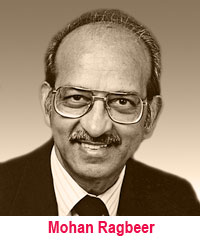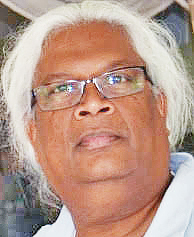Opinions
Lying, the new Truth?

That statement could have been written last year to explain the rise of Donald Trump. His criticism of previous US wars, his condemnation of Obama’s policy of continued belligerence, his distancing from Corporations run by the same functionalists that caused the financial
crisis of 2007-9 – yet escaped punishment, reaping huge rewards instead – and his contempt for media corporations and their “faking” of the news, clearly attracted ordinary Americans. The “distress and division” are more obvious today than in the context, the humiliating end of the Vietnam war. Americans had killed untold numbers of Vietnamese nationals, 1.5-4.5 million, uprooted thousands of villages and dropped innumerable bombs there and in neighbouring Cambodia and Laos, where even today unexploded bombs go off, killing and maiming hundreds, who know little of the horrors of that war.
The Americans were driven out, in ignominy, after twenty years of brutality and inhuman actions, including the rape and slaughter of women and children, including the notorious My Lai massacre. They scrambled to evacuate their embassy staff by helicopter, while thousands of local minions, no longer useful, pleaded for aid, but instead, were crudely pushed off barricades and fences by marines with rifles; they had erred in believing that the invader would honour their service and lead them to a better life, to that democracy they imagined, far from Ho Chi Minh, the “tyrant”, even when they knew that US-protected Saigon leaders were corrupt and thieving tyrants.
One image, not published in the US, as far as I know, but in Geneva, in 1974, was that of the President of Vietnam Nguyen van Thieu, on the steps of a Swiss Bank, having allegedly deposited to his account half of a US payment of $120M, meant to as general aid.
Trump thinks the media disseminate fake news. In Vietnam, USAF Captain Brian Wilson, who carried out bomb-damage assessments in the Mekong delta, gave firsthand reports: "It was the epitome of immorality...One of the times I counted bodies after an air strike – which always ended with two napalm bombs which would just fry everything that was left – I counted sixty-two bodies. In my report I described them as so many women between fifteen and twenty-five and so many children – usually in their mothers' arms or very close to them – and so many old people." When he later read the official tally of dead, he found that it listed them as 130 VC killed.”(https://en.wikipedia.org/wiki/Vietnam_War_casualties). The news of such kills was important, not so much for the record, but for military promotions, which high “kill numbers” assured. The faking of news was thus common, victories inflated and defeats minimised by commanders.
In a 2011 book, titled What It Is Like to Go to War, Marine Lieut. Karl Marlantes, a Viet Nam veteran, wrote, “People lie. They lie in business, they lie in universities, they lie in marriages, and they lie in the military. Lying, however, is usually considered not normal, an exception. In Vietnam lying became the norm and I did my part.” He then describes despatches and news reports, shaped by lies, and how lethal they could be.
Trump’s executive actions recall those of JFK, Johnson and Nixon re Vietnam and his approach recaptures those of past rulers. He stuck early to some promises: he removed climate change from White House website, replaced it with promises to drill for oil and approve pipelines, not renewable energy; to build the Mexican wall; and exclude certain Muslim states.
He had naively stated that his ruling was not anti-Muslim, yet anti-Muslim acts have become frequent, even affecting US citizens like Muhammed Ali’s son and wife, who were detained because they were Muslim.
In December, 2015, during his campaign, Trump condemned Saudi actions against Yemen, the spread and militarising of fundamentalist Sunni Islam, and promised to end arms sales to the country. Instead, he has reneged and apparently exceeded Obama’s arms sales to Saudi Arabia and increased the bombing of Yemen, ostensibly the al Qaeda sectors, but al Qaeda is intertwined with the ordinary population, so targetting will kill more innocents than militants.
So for me, this is a grave error, and puts Trump in the same dishonorable position as his predecessors who ramped up a war they had promised to end.
School bus pass opens up world
 Romeo Kaseram
Romeo Kaseram
It came to pass students received a free school bus pass. This was a windfall for a young man growing up back home, eager to explore beyond the confines of the tall fields of sugar canes dominating the landscape in whatever direction one turned the head.
Coming to think of it, taking public transport for the first time was an eye-opener, since the three of four stairs it took to climb up into bus put me above the sugar cane fields. It was then from this elevated view where I began to appreciate how far away the tops of the sea of green reached. These long swaying stalks of sugar canes were as solid as a
tabletop, which since I was a boy I had always looked upwards to from its fibrous roots to the tallest tips of the silky, feathery gloss when it put out its cane arrows early in December. Also, for the first time, I began to appreciate the unending continuity of these fields, how wide and deep it was cultivated from the centre at the foot of the mountains, then outwards to the distant shores, where another sea of green, its waves tipped with white crests, flowed away and outwards to the sharp and distant line of the horizon.
I recall watching both oceans unfolding before me, one of sugar canes, the other of the Caribbean Sea, out of the clattering windows of the rickety bus as it bumped and trundled along the rutted roads. Despite the bone-wracking bumps that dislodged the vertebrae of the lower back with each dip of the unforgiving coloured plastic seats insecurely anchored to the floor, these buses took me away at least once a week from the confines of village life to the thriving city.
It deposited me at the bus station, where right away I was assailed by car horns, each if honked on its own and in sequence would be a symphony to an ear accustomed to the morning alarming of roosters, the mooing of cows communicating readiness for milking, and the bleating of high-maintenance goats impatient to head out to pasture.
Instead, the cars all seemed impatient with each other, driving up closely as if to examine each other’s behind like dogs, honking endlessly so their sounds became a cacophony directed by the annoyed gesticulations of drivers with hands and impatient fingers. Most of the times the gesticulations were for venders pushing carts filled with precariously balanced vegetables, or others carelessly crossing the roadway holding aloft tall sticks from which dangled any number of items ranging from dolls’ dresses to razor blades to women’s unmentionable underwear, totally oblivious to the oncoming traffic and the need for the vehicles to also get about their business.
To go down to the pier was to be assailed by the smells of rot that proliferated in discarded vegetables, in numerous dead fish floating in iridescent patches of oil, and other flotsam washed down from the city streets, which now gently lapped against the side of ocean liners sitting heavy in the port like large, overfed geese, their foreign names painted on each side with type that was perhaps ten feet tall and which could be easily read from a mile away.
To stare at these ships was to bring to mind those endless nights of reading ancient sea stories by lamp light to an underfoot symphony of mosquitoes ignoring all the written rules about rests in music, and where an occasional moth would slam into the lampshade with the suicidal fanaticism of a kamikaze. To look at the gangplank leading down to the dry dock was to dream of ascending it to the deck, then to turn around and look out at the tops of the buildings of the city, and in the distance, to see for the final time the wide green carpet of sugar canes before sailing away to an unknown horizon.
Perhaps this was what it did, these school bus passes, in opening up the world for a young man. It was more than just a free bus ride to the city. What is did as well was offer insights into new places and new worlds. So, it took me out of my village world to the big city, and then there, at the quayside where the ships called, at that spot where the waves lapped at the barnacle-encrusted posts driven into the oceanfront, on which the ships where chained when they arrived, it presented even more of a bigger world worthy of exploration.
I suspect I began to journey out of my dream-world with these trips. I began putting flesh to the words I was reading about sailing ships when I flashed that government-issued school bus pass, stepped onto the bus, and letting it take my body up above the fields of sugar canes, even as my imagination soared and I began dreaming one day of a similar universal pass for a ship, which I could use to climb aboard and trundle along to places of exploration beyond further shores where sugar canes did not grow.
